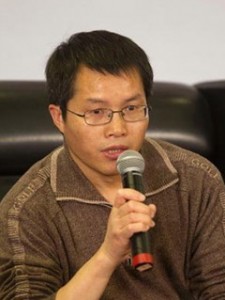Chinese journalists and editors have long been the subject of severe censorship by the Chinese Communist Party (CCP). But one particular incident in January sparked nation-wide protests against the government’s practice of blatantly suppressing freedom of speech: the rewriting and replacing of a politically charged New Year editorial of the Southern Weekend magazine without the consensus of its editor. The incident prompted massive protests against the regime on the streets as well as online on social media. However, the Chinese propaganda agencies did what it knows best – imposing strict censorship and blocking internet sites while increasing the number of security personnel on the streets.
Enter April, and no improvement has been made. The country ranks 173 out of 179 in the Index of Press Freedom, a yearly report conducted by the watchdog group Reporters without Borders (China is only outranked by Eritrea, North Korea, Turkmenistan, Syria, Somalia and Iran). Article 35 of the Chinese constitution states that ‘Citizens of the People’s Republic of China enjoy freedom of speech, of the press, of assembly, of association, of procession and of demonstration’. However, by law, the authorities have the right to censor any stories considered to be sharing ‘state secrets’, and so viewed as endangering to the nation. The definition of ‘State secrets’ is extremely vague and the law is commonly used to censor any information deemed to be harmful to the authorities’ political or economic interest.
In 2013 new regulations on internet usage have been implemented, enabling increased internet censorship. For instance, as a way to suppress the increasing political discourse on the country’s Twitter-like blogs, internet users are now required to register on various social sites with their real name. It has long been practice to detain and even imprison internet user for politically sensitive comments, and the new regulations certainly makes that job easier, as the persons behind anti-government posts now can’t hide behind online pseudonyms. Moreover, in periods of controversy, certain websites such as Wikipedia are blocked by the government. Controversial photos and search terms are also banned. For instance, the New York Times website was blacked out in 2012 when it published a report of then Party Secretary Xi Jinping’s private wealth. Reporters without Borders estimates that 77 ‘cyber dissidents’ are currently jailed in China.
The most powerful monitoring body in China is the Central Propaganda Department (CPD) which makes sure content promotes party doctrine. The CPD gives directives to the media, restricting coverage of politically sensitive topics such as domestic discontent or any issues relating Tibet. Moreover, these directives often instruct journalists to use Xinhua, the state news agency, for gathering information. The consequence of violating the Chinese censorship can be severe. Reporters without Borders notes that journalists disregarding the media directives often face harassment and prison terms. Leaking the CPD guidelines is also punishable, as they often enter the category of ‘state secrets’. For instance, Shi Tao, a journalist detained in 2004, is serving a ten-year sentence for posting an online summary describing the CPD’s instructions for how to report the fifteen-year anniversary of events at Tiananmen Square.
As of December 2012, according to the Committee to Protect Journalists, China was third to Iran and Turkey for the most jailed journalists in a single country, with at least thirty-two journalists imprisoned. The propaganda ministry is not only cracking down on journalists sharing ‘state secrets’ or posting anti-government articles. Writing suggestive articles that do not align with government politics is also punished. For instance, Deng Yuwen editor of the Study Times was suspended in the beginning of April for expressing disapproval with China’s lingering relationship with North Korea. In his opinion piece titled China should abandon North Korea, published in Britain’s Financial Times February 27, Deng argued that China should consider abandoning its ‘outdated’ alliance with the North Korean regime. Apparently, even this suggestive article was viewed ‘endangering to the nation’, and he was relieved of his position.





 Print
Print Email
Email